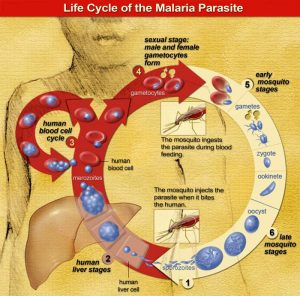By NewsDesk @infectiousdiseasenews
In a presentation at the Annual Meeting of the American Society of Tropical Medicine and Hygiene (ASTMH) this week, researchers working in Uganda found COVID-19 patients with high rates of exposure to malaria were less likely to suffer severe disease or death than patients with low exposures.

“We went into this project thinking we would see a higher rate of negative outcomes in people with a history of malaria infections because that’s what was seen in patients co-infected with malaria and Ebola,” said Jane Achan, PhD, Senior Research Advisor at the Malaria Consortium and a co-author of the study. “We were actually quite surprised to see the opposite—that malaria may have a protective effect.”
She said that an assessment of 597 hospitalized COVID-19 patients found only 5% of patients with high levels of previous malaria infections suffered severe or critical outcomes, compared with 30% for patients with relatively low levels of malaria exposure.
Colorado: Hyenas test positive for SARS-CoV-2, 1st such cases
Severe and deadly COVID-19 infections are often associated with a surge of inflammatory proteins called cytokines—sometimes called a “cytokine storm.” In the Ugandan study, COVID-19 patients with a history of malaria infections maintained normal levels of cytokines. Achan said a “blunting of cytokine response” has been known to occur in older children and adults living in areas of Africa with high rates of malaria. She said a potential protective effect from malaria infections could help explain why the pandemic has thus far not produced the high levels of deaths many feared would occur in Africa.
- Austria goes into full lockdown: It was not a popular decision, ‘but a necessary one’; Upcoming vaccine mandate
- ‘Smallpox’ labeled vials actually contain vaccinia: CDC
- Argentina: Suspected case of cutaneous anthrax reported in La Pampa
- Fighting West Nile Virus by adding ivermectin to backyard bird feeders
- Ivermectin credited with eliminating river blindness in Plateau and Nasarawa states in Nigeria
- Europe Newswire: COVID-19 rising
- Salmonella outbreak linked to onions grows by 84 cases
- Imported Monkeypox case Reported in Maryland: CDC statement
- C. diff awareness


2 thoughts on “High Exposure to Malaria Linked to Lower Risks from COVID-19: Research”